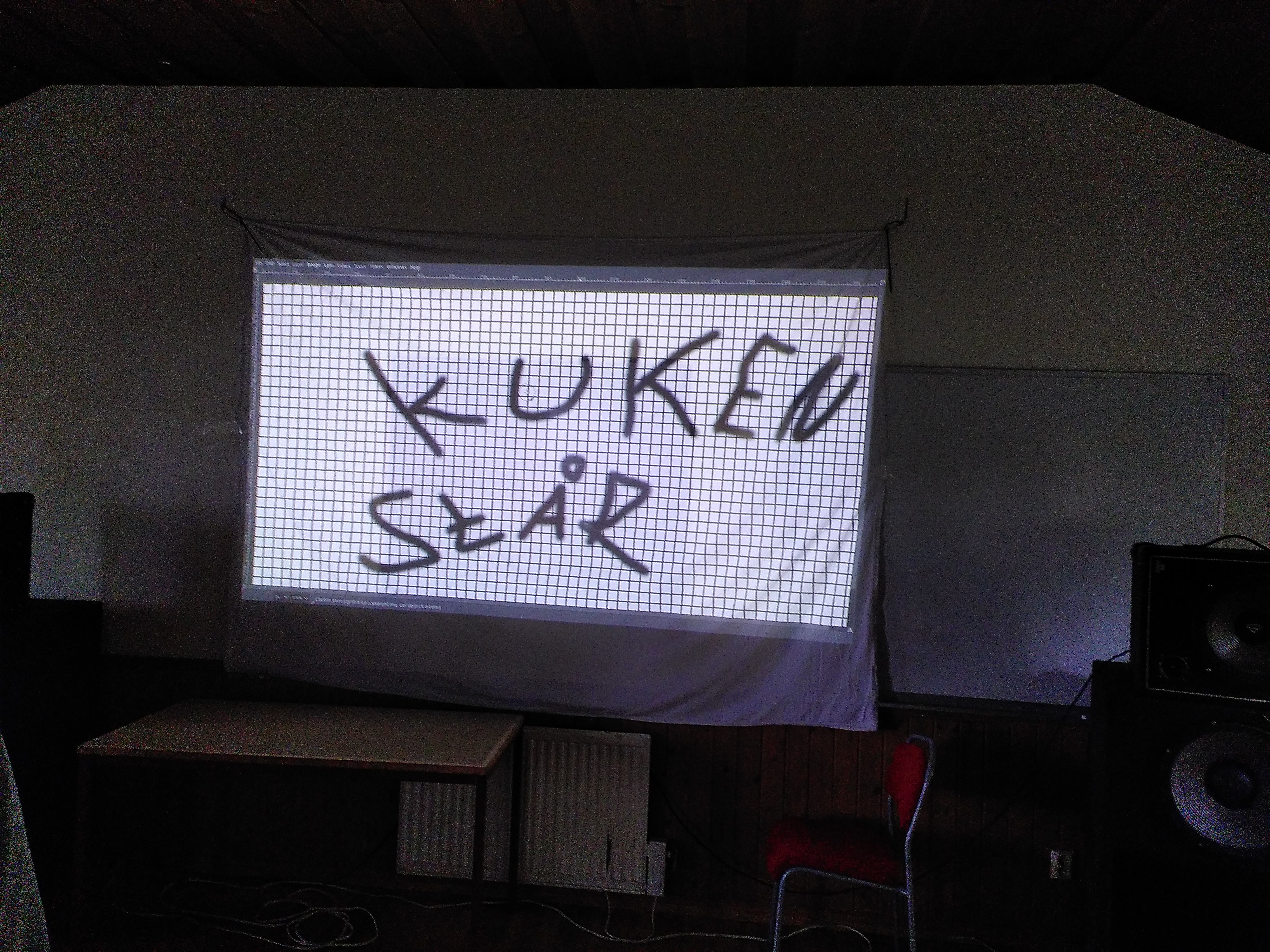My brother and I put a corked glass bottle down in an old defunct drainage pipe beneath my parents’ house. This pipe/canal is quite large and isn’t obstructed by the bottle, and the bottle can clearly be seen by peering into a hole in the cement of the basement storage room. Inside of that bottle is a carefully folder paper bearing on it a crude drawing of a cock and balls.
I hope you used archival ink so it will last for generations
It was likely a permanent Sharpee marker. Hopefully it holds up. Fingers crossed that I’m able to return there as a ghost one day to watch someone unearth what they believed was a map to the family treasure.
incredible
A locked safe
An EMPTY locked safe.
As is tradition.
Leave a spider in it.
Expected treasure, but safe contained a live panther; would not buy again.
apologies to XKCD
Empty save for claw marks on the inside, and the creepiest doll you can find.
Bruh. I had almost managed to forget.
Shoebox
Filled with jolly ranchers.
Cum box?
Bathtub.
Doritos
What am I missing
There was a post on that other site a few years back where someone found a locked safe and posted about it. I wanna say they were asking for advice about how to open it (I’m fuzzy there), but it turned into this whole thing where it felt the whole internet was hanging on a cliff edge, waiting to see what was in it. People were guessing, making bets, giving advice, promising first born etc.
Nothing. There was nothing in it. It was empty the whole time. A little piece of me died that day.
Not sure if you’re aware, but there’s a toilet in your bathtub.
Every bathtub’s a toilet if you believe in it enough.
The ole waffle stomper
Every toilet’s a bathtub if you believe in it enough.
Deleted
“They’re just holes with water”
Having pulled a toilet out to fix something more than once, the bathtub is exactly where you want to put it while you work.
I’ve got one of those too. Really annoying.
Efficiency
Where else would it be?
In the sink
Disgusting. Do you take a bath in the sink, too?! smh
For those mega poops that overflow
A time capsule
Place photos and some small objects maybe even a usb key, dvdr or cdr with a video of you explaining everything and telling the viewer who you are, what year it is, what’s going on and what’s important to you right now. Place it all in a water tight container, maybe even an iron case and weld it shut.
If you have small kids, tell them what you’re doing and show them … maybe they or their kids or your descendants might dig it up some day.
Of all the places I’ve renovated, I would have enjoyed finding something from someone else’s life.
Best bet is long term optical discs or long term magnetic tape. USB keys are not good for long term storage. USB keys use NAND memory that is a series of floating gate metal oxide semiconductors (FGMOS). These operate by using Fowler-Nordheim tunneling, in where a charge is carried along a regular style fin field-effect transistor (FINFET) and a charge above the transistor’s channel causes some electrons to quantum tunnel into floating gates that are isolated by oxides.
While these floating gates are sealed off from everything, so the charge should stay “indefinitely”, quantum effects cause some of the electrons to “leak” out of the floating gate, causing a degradation of the stored signal. Typically there’s a refresh circuit within the USB key’s integrated circuit that takes care of that and USB data can last seemingly forever. However, that refresh circuit requires a small amount of power, which if you store the USB stick somewhere for years on end, will never get powered.
This is the reason why flash memory only assures data can be retained for about ten years without power. Eventually the electrons “trapped” in floating gate have enough time to tunnel out of the floating gate completely obliterating the signal. The tunnel events aren’t many per second, but give enough time, and all of those events add up. Paired with the whole thing that USB sticks mostly no longer use binary logic levels. Most are now using something like four or eight logic levels. So instead of there just being on and off, there is 0V-0.7V = 00, 1V-1.7V = 01, 2V-2.7V = 10, 3V-3.7V = 11 logic levels. So a small amount of charge loss can create a different bit pattern.
One thing to look at for long term storage is something like M-DISC. The matter by which the burned data onto the optical media is made is via a process that takes about 10,000 years (estimated) to break down. However, the disc itself is in a polycarbonate thermoplastic that has an average breakdown of only about 1,000 years in extremely dry environments and about a tenth of that in your average sealed lock box environments.
Your average spinning disk hard drive can store information for some time, but the storage requirements are pretty intense and even then hard drives loose about 1% of the magnetic strength per year without power. And about 70 years is the max before the various magnetic bits that form the low level format of the disk have degraded without power to the point that the disk has too many bad sectors to be called usable. But outside of that, the biggest fault is mechanical failure. No matter how well you think you’ve stored a drive, it’s never good enough and the spinny bits always fail from becoming too fragile from pervasive oxidation. Basically the drive will spin up only to tear itself apart as some weaken part of the armature flies into the spinning platters.
But USB sticks will only give you about a decade before the stored information fades away into the quantum ether.
Thanks for the detailed explanation … now I know not to rely on usb for extremely long term storage … never understood how they worked until I read your comment.
It makes me wonder … what long term storage would be the best option for storing digital information … like to store something for 100 or 200 years? Anything beyond that and I would just rely on writing something in stone and burying it.
what long term storage would be the best option for storing digital information
The biggest factor with passive storage, something that’s not refreshed. Optical media that’s made to last. M-DISC comes to mind, but there’s no proof that worse case 100 years is a valid claim. Chemically speaking, a well kept disc should keep 100 years, but that’s chemical composition in an ideal case. Nothing in manufacturing is perfect, so impurities are always going to be there robbing the lifespan of these discs.
Magnetic tape ideally lasts decades if not close to a century, but these are tapes that are kept in incredibly controlled conditions. If you’ve ever worked in the server world you’ll know that any plain Jane LTO magnetic tape can’t be trusted after collecting dust for anywhere close to five years.
We have scrolls, we have books, and we have stone tablets that have endured centuries, but the key in all of those is how well they were kept. The construction matters, but the bigger aspect is the environment they were kept in. For digital media, we don’t know any real way to keep digital data in a passive state for centuries because, well, we haven’t had digital data for that long. We’ve got really old punch cards that are close to that age, but even then, some of the oldest stacks are now sitting in hermetically sealed cases and are actively upkept to prevent UV damage by clear coating those cases on a regular basis.
And that’s the thing with digital media, keeping it in an active storage rather than passive may be the key for centuries of longevity. USB sticks are fine so long as someone remembers to plug them in and allow them to refresh every some many years. Most USB sticks use ceramic capacitors, so leakage there isn’t too much an issue. The bigger thing might be corrosion of the various traces and pins, but if well kept, that might take decades to eventually make an impact.
Sometimes, I like to parallel digital long term storage as the Ship of Theseus. If you keep moving the data from one device to another, it’s still the same data. And in that sense, the data can live forever. Even if there’s a gap of say two decades, if you can still get to the data and convert it into something modern, the data lives on. It’s not the original medium, but with digital data, it doesn’t have to be, that’s the neat thing about digital data.
I think people still are working on trying to wrap their heads around digital data versus the way we used to do it. You know, someone might have the family bible and we’ve got to keep it nice and tidy and careful with it, because with analog data the medium and the information are one in the same. And I think sometimes people look at family digital photo collections like that. Like it’s the family bible and that we’ve got to keep it safe. But if it’s a USB stick that you pull out every so often, look over it, and call it day. Maybe move the photos from the Walmart USB stick that you got in 2016 to the new 800TB USB-F stick you just got from neo-Amazon in 2073, those photos can live forever. You don’t have to be careful with them anymore.
I think that’s one of the reasons that open formats matter so much. If you stored all your family videos in Windows Media Format, what happens when Microsoft dies in the Second US Civil War of 2038? That’s not helping you in 2073 to open those files on a format you can never figure out. But say you stored it in some open format. Now all you need is an implementation of that format and a compiler. And poof, now you have a modern codec to read the files of the before times.
It’s one of those fun maybe slightly existential kinds of things. Nothing lasts, no matter how hard we try, nothing will last. All things forgotten decay, we can only slow that decay down, but we can’t prevent it. But things that live, things that pass through the hands of the living, those things endure because there are people who put time, one of the most precious resources we have, into them. Our reward for that investment of time is something that continues beyond the decay.
I like to think of it as the balance of the universe. You get to keep this, but only if you give a bit of time to pay for keeping it. And sometimes it’s crazy to think of how much that applies to. Also I likely shouldn’t reply after having a few drinks. Wooooo!!
Environment makes all the difference for passive storage, sorry I really went out there on the reply.
Laser etching in glass could probably work well for long term storage.
Don’t bother with a usb key. Flash memory is technically volatile, it just takes a while to blank. Unless you plug the key in every 5 to 10 years, it will start losing data. By the time the time capsule is unearthed, it will likely be blank or corrupted.
I wouldn’t bother with the cdr or dvdr either, they’re likely to be dead too in 30y.
Yeah. Just print out some tasteful nudes, seal them in a ziplock bag and you’re good to go
Of all the places you’ve renovated, in how many did you check the foundation under the toilet for hidden treasures?
I certainly hope OP will fix the toilet once and for all, so that the next time this pipe sees the day of light is when a bulldozer excavates the foundation for the next building.
None … but if I had had a relative or friend tell me a story that someone had buried something there 50 years ago, I would have taken the time to dig it up while I was tearing down walls or breaking concrete.
I like your idea, but it just brings to mind how fragile all of our digital media is, not to mention the surrounding tech necessary to read and understand it. What we know works is to press your message to the future, grocery bill, whatever, into clay and then accidentally burn the city down around it – good for millennia.
This is a really nice idea. Which is refreshing, because my go-to is always something mildly disturbing but not too scary or criminal.
If I were going the wholesome route, I’d add a paper note to the USB or other digital storage, though. If I were to find a LaserDisc from 1990, that would be more or less unreadable without expending some significant effort.
But maybe future folk will have magical devices that can read cassettes, 8-tracks, or whatever.
Nah just trace a picture of Dickbutt.
@ininewcrow I wanna steal this idea.
Can we vote? I say Elon Musk.
10/10 will rot in place, making more damage.
More or less damage than he’s currently doing?
To the structure of that building, more. Less everywhere, that’s the silver lining.
The whole what?
All of it.
A dictionary.
Surprise the next guy to dig a hole there, by adding another hole underneath the hole.
Bunch of spring-loaded snakes
Buy a plastic skeleton from a Halloween shop
No, obtain a real human skeleton from… a legal skeleton store 🤔
Half a map
This is definitely the answer. Bonus points for contextless clues to getting the other half.
Plus references that it leads to the answer to the super secret nobody would believe, and untraceable riches to boot.
Stuff from different decades just to confuse whomever finds it. Like get a Five Stairsteps album from a used record store, a Blue Oyster Cult 8 track, a Tecmo Bowl cartridge, a Boyz II Men CD, and a newspaper from yesterday.
“This guy… had good taste.”
I hate to be a killjoy, but it’ll clearly be a single deposit layer dated to on or after the latest date-able item. The fill will all be the same and its own distinct layer against the rest of the area. If you have a long enough time to keep it open, want to dig more, and have different fills, you might be able to accomplish something, but the different fill materials would likely have no real match in the surrounding still making it obvious.
EPIC TROLL!!!
Write a long ass book that’s filled with stupid stuff like “Fear not for I shall return from my deep sleep in 4*10^6 years and give the heavens (a bunch of virgin girls) to those who I find worshipping near the ground of this very hole you find the book I sent you” and toss it in.
DO NOT return in 4*10^6 years otherwise you wouldn’t have trolled the entire humanity.
Me on Lemmy today:

Me on Lemmy today:

had no idea foundations were that thin. no wonder they crack so easily
You can have thicker ones by making them more thick
ah yes
tautology
i don’t think they are, usually
I hope the foundation of your house is deeper than that.
Under the outer walls that support the roof and/or additional stories there will be a sizeable footing that should go below the frost line. But inside the footing where the foundation is just supporting the first floor you only need a few inches of concrete.
That’s not actually the foundation, its a floor.
















